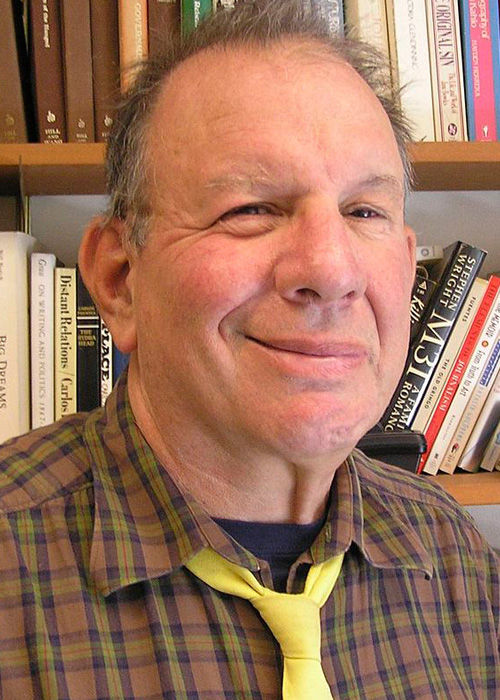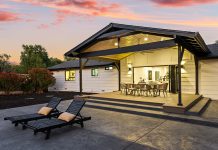Mike Benziger grows some of the best marijuana in Northern California. He grows it biodynamically at “Glentucky Family Farm.”
Demeter, the world’s largest certification organization for biodynamic agriculture, gave him its official stamp of approval. He wears it proudly. Not surprisingly, there’s a big demand for his cannabis. It’s sold in dispensaries in Sebastopol and Santa Rosa.
Born in New York, Benziger arrived in northern California in 1973 and hasn’t ever left. Recently, he joined a panel discussion at SHED in Healdsburg where he shared his knowledge.
“Biodynamic farming respects the local rhythms around the plant and it also elevates the plant into a medicine,” he said. “You have to look into the plant, not at it.”
On the science of growing marijuana, Benziger was an open book, especially with people in the audience who expressed a genuine curiosity about the subject.
In winter, he explained, he grows cover crops. He also adds cow manure to the soil. In summer, he grows outdoors in an area that’s 5,000 square feet. Nearly all year long, he also grows indoors in an area that’s 600 square feet.
He has the necessary permits and he keeps accurate records of everything he does on his land. He’s not yet done with the whole permitting process — no grower in Sonoma County is — but so far his permits have cost $20,000. All permits that have been issued are only temporary.
With his neighbors, Benziger has been candid about cultivating marijuana. They haven’t complained to the county about the aroma of his plants, and they’re not worried about crime and criminality in the neighborhood.
Benziger gives educational tours, though he doesn’t advertise his location. The tours are by appointment only.
He also grows vegetables and sells them to local restaurants. Along with his cannabis, his lettuces have won him a lot of friends.
There’s a lot Benziger could teach up-and-coming growers. These days, he also works with other concerned citizens to find ways to help pot farmers, some of them friends, who have been zoned out by the county.
While he has only grown marijuana commercially for 3.5 years, he grew grapes biodynamically, and made wine for 38 years at Benziger Family Winery. He helped make Benziger wine world famous.
“The grape and wine industry consolidated slowly over the course of many years,” he told me recently over lunch. “With cannabis that whole process is happening very quickly.”
He added that both the grape and wine business are “connected to the earth and both are fighting accusations that they violate the land. They have a lot to learn from one another.”
Benziger is growing marijuana right now, but he’s unsure how much longer he will continue to grow it. “If there is too much hassle I might get out,” he said. “In the last six months, I was almost ready to say forget about it. But I’ve spent so much money for permits that I decided to stay in.”
Many others have not been as fortunate as he. They haven’t had the wherewithal and they’ve had hostile neighbors.
Indeed, there has been push-back from nearly all sides.
Cannabis sage, John Kagia, reminded me that about 40 percent of Sonoma County voters went to the polls in 2016 and cast ballots that said no on Proposition 64 that legalized the adult use of cannabis.
The executive vice president of industry analysis at New Frontier — a marijuana think tank — Kagia visits northern California pot farms regularly and talks to pot farmers. He also follows industry developments from his Washington, D.C. office.
“At the local level, in Sonoma and elsewhere, there are deep pocket of resistance to cannabis,” Kagia said. “The people who voted against Proposition 64 are still around and they’re against marijuana anywhere near them, perhaps more than ever before.”
Kagia added that, “the resistance is higher in the 55-plus age group than in the 18-35 age group.”
He argues that, “Local governments should make decisions about cannabis based on facts and not on fears.”
Sonoma State University Professor Nicole Wolfe knows the fears and the facts. Every semester, she teaches a popular class about drugs. She provides real information, not myths and fake news.
Many SSU students, Wolfe told me, enroll in her course, “Drugs and Society,” convinced that smoking marijuana will lead to heroin and a lifetime of addiction. That’s what parents and teachers have told them.
The SSU students would learn a lot if they visited Glentucky Family Farm and worked with Mike Benziger, even for half a day.
Moreover, he would be a great guest in Wolfe’s class, not only because of his knowledge about biodynamics and about cannabis as medicine, but also because of his positive outlook on life.
“I’m a full-glass guy and maybe one of the happiest persons you’ll ever meet,” he told me. “I can’t wait to get up in the morning and go into my garden.”
Jonah Raskin, a professor emeritus at Sonoma State University, is the author of Marijuana: Dispatches from an American War, published in French as well as English, and shares story credit for the feature length pot film Homegrown. His monthly column, “Cannabis Country” is almost two-years old.









